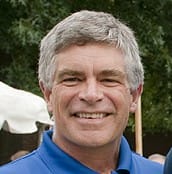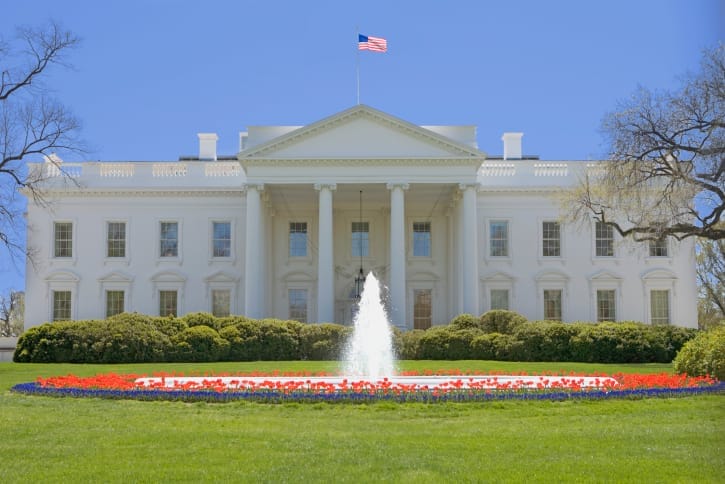It was not a straight-up sales pitch—but a convincing one. Professor William F. Hamilton and Patrick T. Harker, CE’81, GCE’81, GR’83, HOM’87, stood before a lecture room of current students and raved about one of the “most extraordinary experiences” of their lives: the year they spent as White House Fellows.
“I have to say without a doubt, it changed the trajectory of my life,” Harker said, former Wharton dean and professor and current president of the University of Delaware.

Patrick T. Harker, CE’81, GCE’81, GR’83, HOM’87
That is saying a lot. In 1991, Harker was in his early 30s and already a star among Wharton’s faculty as head of the Operations and Information Management Department. The White House Fellows experience, however, accelerated his leadership growth.
He worked with the director of the FBI and handled his technology portfolio. Hamilton, the Ralph Landau Professor of Management and Technology and director of the Jerome Fisher Management and Technology Program, was assigned to the secretary of transportation during his fellowship.

William F. Hamilton
The White House Fellows Program was launched in 1964 by President Lyndon Johnson to provide motivated and accomplished young Americans, across many disciplines and industries, with first-hand experience at top levels of the Executive Branch to gain understanding of governing and leadership.
Not only do Fellows get assigned to work directly with cabinet members, the vice president or other administration leaders, they sit down with current and former who’s whos and has-beens of Washington. For instance, during Harker’s year, his class had a conversation with Bud McFarlane of Iran-Contra infamy, who explained why he attempted suicide after the scandal broke.
“You get a sense for the price people pay for leadership in a very intimate way,” Harker said.
Fellows also venture beyond the confines of the Beltway on trips around the country and the world to gain greater understanding of domestic and foreign policy. During Hamilton’s year, he traveled with his peers to Egypt as de facto ambassadors, after President Nixon opened up dialogue with the nation. Hamilton recalled the “frank discussions” that he and the other Fellows had with all of Egypt’s cabinet members.
Harker and Hamilton held a special information session on campus in late November to encourage Wharton students to apply for the White House Fellows. Earlier in its history, many brand-name U.S. companies sponsored employees as Fellows, but that trend has faded recently. The two Fellows alumni hoped for more business-oriented people to become involved again. Participants generally return to their careers after the year—they typically do not transform into full-time policymakers—and knowledge of public policy is crucial, said Harker, for business people whose companies , careers and lives will be affected by government time and again.
“Wharton has a great record of placing Fellows,” Harked added, estimating that the School has had participants for five to six years in a row, with two in one year alone.
The director of the White House Fellows program is an alumna: Cindy Moelis, W’82.
Editor’s note: The application deadline for the upcoming White House Fellows year is January 15. More information can be found at www.whitehouse.gov/fellows.

























